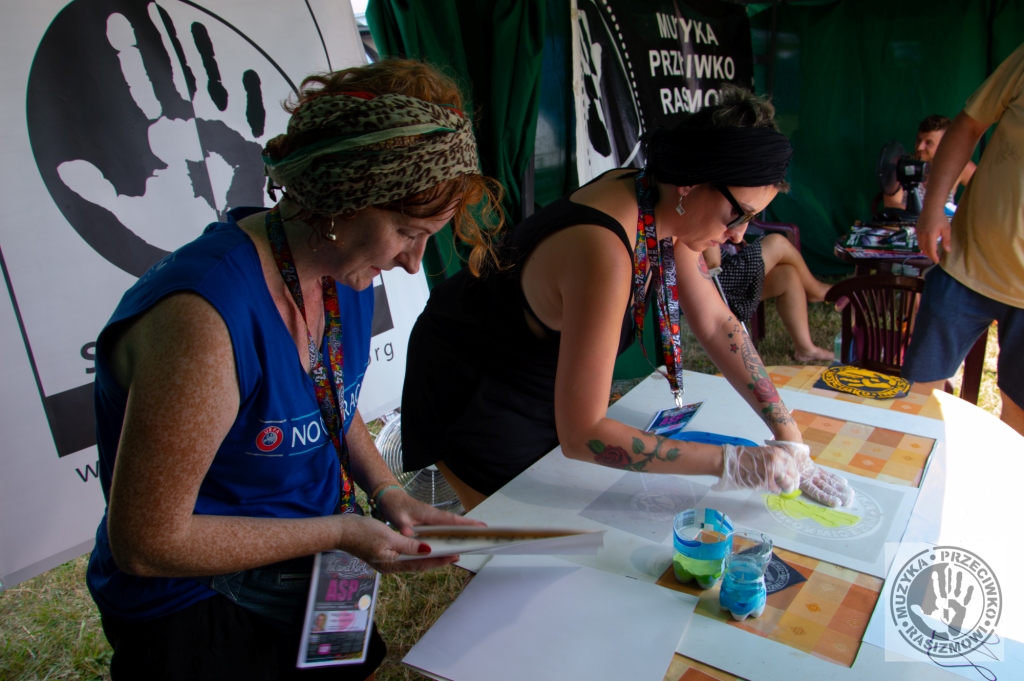- About
- Topics
- Picks
- Audio
- Story
- In-Depth
- Opinion
- News
- Donate
- Signup for our newsletterOur Editors' Best Picks.Send
Read, Debate: Engage.
| topic: | Racism |
|---|---|
| located: | Russia |
| editor: | Andrew Getto |
In August, a Siberia-based Japanese delivery restaurant, Yobidoyobi, posted some photo ads on social media. Business continued as usual until one night a man texted the chain’s customer support. The beginning of their conversation went as follows:
- Do you think African Americans in an ad are a good fit for Krasnoyarsk?
- Hello! What’s wrong with that?
-So, in your reality it’s normal when an African American sits in the center with Slavic women around him? This question will help us figure out whether a man or a woman is speaking to me right now :)
The man was Vladislav Pozdnyakov, the founder of the Male State (MS) online group, whose ideology resembles that of Elliott Rodger, the California college kid who shot and killed seven people, including himself. Before going on a killing spree, Rodger uploaded a manifesto blaming women for his sexual frustrations.
Male State portrays women as dumb, evil, essentially subhuman beings, and spices it up with white supremacism. The group came to prominence by doxing and harassing women for misdemeanors, such as dating non-whites, and LGBTQ people for existing.
You would expect a fringe group like this to be hiding in the deep web, but the MS is out in the open. At its height, its VK (Russia’s most popular social network) group had about 170 thousand members. After the VK ban, the community moved to Telegram - known for its relaxed attitude towards extremists - and still boasts dozens of thousands of subscribers.
The MS is not all Nazi memes and misogynist comments: Pozdnyakov uses the human resource he has accumulated for social action. His fans paralyzed operations of the sushi chain by leaving orders and not paying for them. After a short while, the company had to give in.
“On behalf of our company, we would like to apologize to the Russian nation for offending Russians by our photos” reads Yobidoyobi’s VK page. The nazi group got what it wanted: the black man who offended their ideology was removed from their photo, giving them the feeling that racial purity was restored - at least in one Japanese delivery restaurant.
The story continues to develop. A bigger sushi chain, Tanuki, released an ad with a black man and an Asian woman, demanding to shut down the Nazis’ Telegram channels. The MS online storm-troopers rose up against Tanuki, but their leader asked them to stop. Apparently Yandex, the online giant running the biggest food delivery app, warned Pozdnyakov of serious consequences should his followers continue to disrupt its business.
This is a great example of how tolerant Russia is towards blatant racism - which comes off as ironic given that the state propaganda continually calls itself the “country that defeated Nazism.” But the reality is that despite spending much of the 20th century under the “friendship of peoples” motto, racism is deep in the fabric of modern Russian society.
Non-white looking people are commonly stopped and frisked and have difficulties renting apartments. Black people frequently confront casual racism: racial slurs are regularly used in public spaces, images of black people are exploited in advertising, reminiscent of 19th century fashion. I remember a tanning salon in the outskirts of my native town in Siberia which featured a huge poster of a naked black man. It was, of course, called The African.
Racism and sexism in Russia are seen as a product of passive ignorance; nontheless, hundreds of thousands of people would like to expel non-white people and are proponents of denigrating women’s legal statuses without fearing any consequences.
One could speculate that law enforcement does not have the bandwidth to crack down on racist extremists since they are occupied with battling journalists, charity workers, anti-corruption activists and religious minorities. Or perhaps the government uses far-right extremists for its own purposes, as history has shown in the past.
Photo by Markus Spiske

